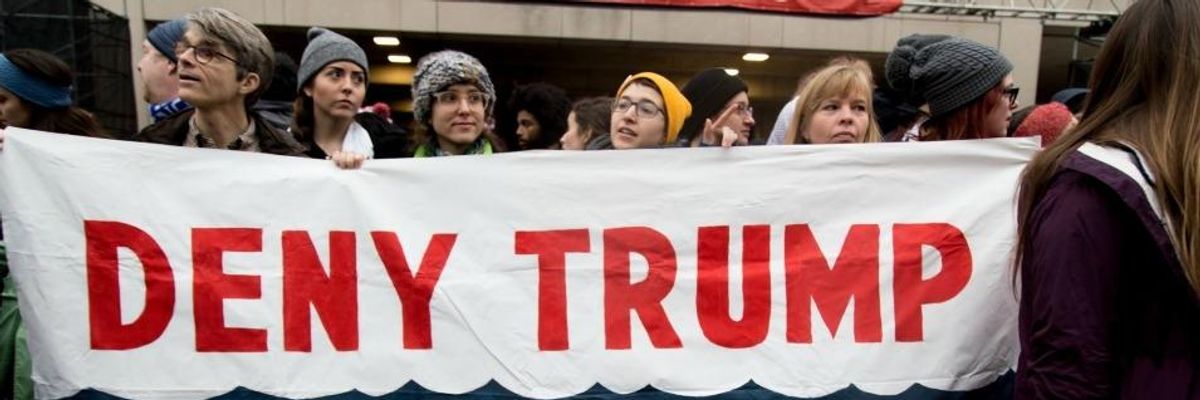President Donald Trump has treated the decision of whether or not to keep the U.S. in the Paris Agreement as a game show. If it were The Price is Right, we would be in the showcase showdown, about to see who got closest without going over.
A number of reports indicate that Trump is planning to pull the U.S. out of the agreement, though a few outlets have stressed it's not a done deal. Trump allies who are against the deal have cautioned against writing it off and Trump himself has tweeted that an announcement is forthcoming without hinting which way he's leaning.
Maybe Trump will keep the U.S. in the agreement and this is some elaborate setup to yell "FAKE NEWS" about Wednesday's reporting. Perhaps it's a way to ferret out leakers. Or it could be all a ploy to play up the Ivanka is trying to be a moderating influence storyline.
Regardless of what Trump announces Thursday at 3 p.m., the waffling over the Paris Agreement has already sent a number of signals and caused a series of reactions abroad and at home that will reverberate for years to come.
Globally, it's sent a message that the U.S. will not lead on climate change. This comes on the heels of Trump's first foreign trip, which caused Angela Merkel to suggest that Europe can't rely on the U.S. This process will likely only reinforce that viewpoint in Germany and in other quarters of the world.
The spectacle of the process alone has caused the United Nations to essentially subtweet Trump and European Commission President Jean-Claude Junker using him as a punchline.
On a more serious note, China and the European Union reaffirmed their commitment to the deal and a plan to forge ahead even more ambitiously. It's hard to see how this will be advantageous to the U.S. in the near- or long-term on the international stage.
If Trump decides the U.S. will stay in after the back and forth, it sends a signal that there is no coherent, stable negotiating position or desired outcome. The clearest thing Trump has said is "we want to be treated fairly," but he's offered no specifics of what that means or how the current agreement is unfair, further underscoring the lack of a plan.
If Trump decides to pull the U.S. out of the agreement, he will cede moral and economic high ground to 194 other countries including rivals like China. It's that simple.
Domestically, it's also a tough nut to crack of what the upside is. The process has been rocket fuel for the #resistance. Officials in deep blue states from New York to California have reiterated their commitment to climate action. Even if the U.S. sticks with the agreement, those states have already positioned themselves to act with more urgency.
Emily Atkin writes about how the agreement could also become a symbol to more Americans if Trump says bon voyage to it:
Americans are notoriously apathetic about climate change. Perhaps abandoning our commitments will finally generate the widespread moral outrage and fear needed to effectively address the crisis. Perhaps a lack of federal government action will motivate state and local governments to amp up their own emissions-reduction efforts.
That certainly seems possible. Though if its only blue states speaking out loudly or acting, it could further build up the red-blue divide on climate change (which is not say those states shouldn't do it).
Maybe building that divide even higher is part of Trump's gambit. Pleasing his base has been a priority for his administration so maybe it's as simple as that (though it should be noted even a majority of them support regulating carbon pollution). Leaving Paris could also prolong a carbon bubble in the U.S. for a few more years, benefiting a small coterie of influential Republican donors so there's that, too. Both reasons seem likely to yield awfully bad returns on investment, deeply cynical or both.
